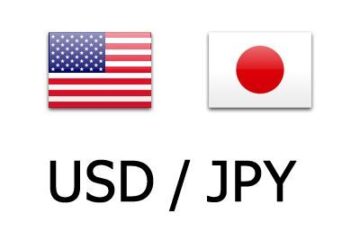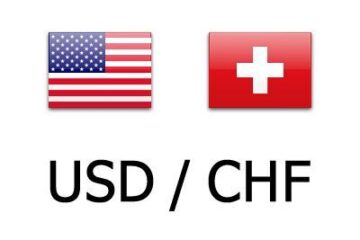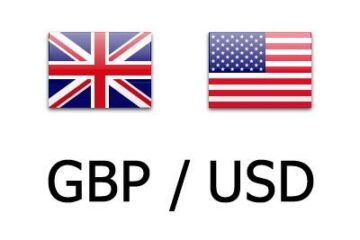Corporate bonds are great investments for those seeking higher yields and can withstand increased risks
Kameleon007 for iStockphoto; Canva
What Is a Corporate Bond?
In a nutshell, a corporate bond is like a loan from an investor to a company, which the company repays with interest by the bond’s maturity date.
Businesses consider bonds to be an attractive way to raise funds for their operations or capital expenditures because the interest they must pay to investors is less than what they would owe to a bank through a loan. And unlike selling stock, a company is not giving away ownership rights when it issues bonds.
There are many types of corporate bonds, although most are issued with maturities between 1 and 30 years. Bondholders usually receive regular payments of interest, known as the coupon, which is determined upon the bond’s issuance. Corporate bonds are subject to taxes at the state and federal levels in addition to capital gains taxes.
How Are Corporate Bonds Different from Treasury Bonds?
Corporate bonds are issued by corporations, while Treasury bonds are issued by the federal government. Treasury bonds are considered to be the highest-quality securities available because they are backed by the “full faith and credit” of the U.S. government and, thus, are virtually default-proof. They are also exempt from taxes at both the state and federal levels.
In addition, Treasury bonds are considered benchmarks for other types of bonds; for example, the 10-Year Treasury is used as a benchmark for performance of all 10-year bonds.
How Are Corporate Bonds Different from Municipal Bonds?
State and local governments issue municipal bonds to fund public projects, while corporations issue bonds to raise money. Municipal bonds often have tax exemptions, while corporate bonds do not.
How Are Corporate Bonds Classified?
Corporate bonds are classified by maturity. They are usually grouped into three categories:
Short-term, which have maturities of less than three years;Medium-term, which are maturities between four and 10 years; andLong-term, which mature in more than 10 years. Longer-term bonds usually have higher coupons than short-term bonds, but they also come with increased risks.
How Are Corporate Bonds Rated?
Ratings agencies, such as Moody’s, Standard & Poor’s, and Fitch Ratings assess bonds based on their creditworthiness, which means their ability to make payments in a timely manner. They assign bond ratings to corporate bonds, which range from AAA (the highest) to D (the lowest).
Bonds that are rated B and above are considered investment-grade. Bonds that are rated below BB are known as junk bonds. This chart illustrates different bond ratings.
To compensate investors for the increased risk, non-investment-grade bonds usually offer higher coupons than investment-grade bonds. These bonds are also known as high-yield bonds. Just remember, the higher the yield, the higher the risk of default, and in the event that a company declares bankruptcy, its investors may not get all of their money back.
Are Corporate Bonds Guaranteed?
Corporate bonds are considered to have greater risk than government bonds because corporate bonds are guaranteed only by the companies who issue them. That means that if a company declares bankruptcy and defaults on its bonds, bondholders will have some claim on the company’s assets.
The order in which investors receive these assets are structured in the following ways:
If an investor purchased a secured bond, the company had used its assets, such as property and equipment, as collateral. These bondholders are legally entitled to these assets.Unsecured bonds, on the other hand, do not have collateral attached to them, although investors in this type of bond are entitled to the company’s general cash flows. Unsecured bonds are also known as debentures and ranked in priority from senior to junior, and investors receive collateral in that order.
Which Corporate Bonds Are AAA Rated?
At present, there are only two companies in the United States have AAA rated bonds: Johnson & Johnson and Microsoft. Investors can check SEC filings to stay up-to-date on the latest ratings.
Types of Corporate Bonds
There are several kinds of corporate bonds, giving investors many options when it comes to a bond’s structure, yield, and credit quality. Here are the most common:
Fixed-rate coupon bonds pay coupons on a fixed, or regular basis, usually twice a year. The payment amount is a percentage of the bond’s par value.Zero-coupon bonds do not offer coupons. These bonds are issued at a discounted price compared to its face value, so the bondholder receives a profit upon maturity.Asset-backed bonds, such as collateralized debt obligations (CDOs), allow investors to claim a company’s underlying assets in case it defaults.Convertible bonds can actually be exchanged for shares of company stock, although that also makes them vulnerable to market volatility.Callable and puttable bonds can be “called” by the issuer before their maturity, and either redeemed at par value or a percentage thereof. With puttable bonds, the investor can “put” the bonds back into the hands of the issuer and receive par value.
Risks Associated with Corporate Bonds
Compared with other financial securities, many types of bonds may be considered to be a relatively stable investment, but that doesn’t mean they’re not subject to risk, such as:
Interest rate risk: Bonds have an inverse relationship with interest rates. When rates rise, bond prices fall, which is why longer-term bonds carry higher coupons as compensationInflation risk: As prices rise, purchasing power declines, which means the value of a bond could deteriorate over time. Default risk: as stated above, in the event a company declares bankruptcy, bondholders may or may not be compensated depending on their priority and whether their bonds are secured.
Frequently Asked Questions (FAQs)
Still wondering about corporate bonds? We’ve compiled answers to some of the most common questions investors have about corporate bonds.
How Are Corporate Bonds Traded?
Corporate bonds are traded over the counter, generally with face values of $1,000 or $5,000. Check with your bank or brokerage to see what trading options you have available.
In addition, FINRA, the Financial Industry Regulatory Authority, has introduced TRACE, which provides real-time pricing for bonds and other securities, available at their website.
Can a Corporate Bond Be Sold Before Its Maturity Date?
Yes. Investors can sell corporate bonds before their maturity, but in the event of long-term bonds, investors lose interest if they sell before five years. Also changing interest rate environments may render a bond less favorable than it was when it was first purchased. Bond resellers also need to pay a brokerage fee, and the proceeds of any sales may be subject to state and local taxes.
When Do Corporate Bonds Pay Interest?
Coupons vary, but generally speaking, corporate bonds pay interest in two installments a year, or semi-annually.
Does the Fed Buy Corporate Bonds?
Believe it or not, the Federal Reserve has been one of the biggest buyers of corporate bonds. As part of its emergency stimulus measures after the COVID-19 pandemic stalled global financial markets, in March 2020, the Fed announced it would buy corporate bonds using its emergency powers. As of July 2021, they owned nearly $13 billion, packaged as ETFs. However, as part of the end of its pandemic stimulus measures, the Fed pledged that it will sell these holdings between June and December of 2021.


